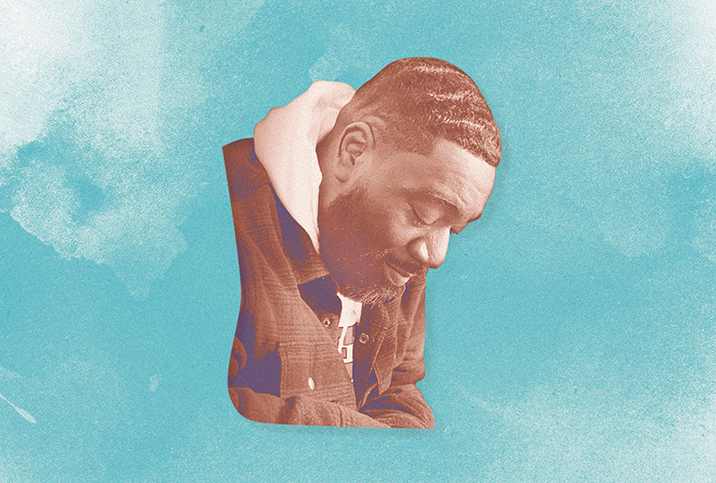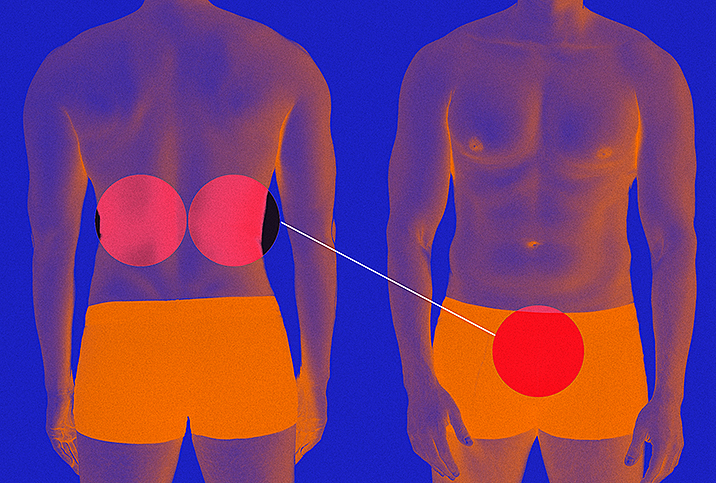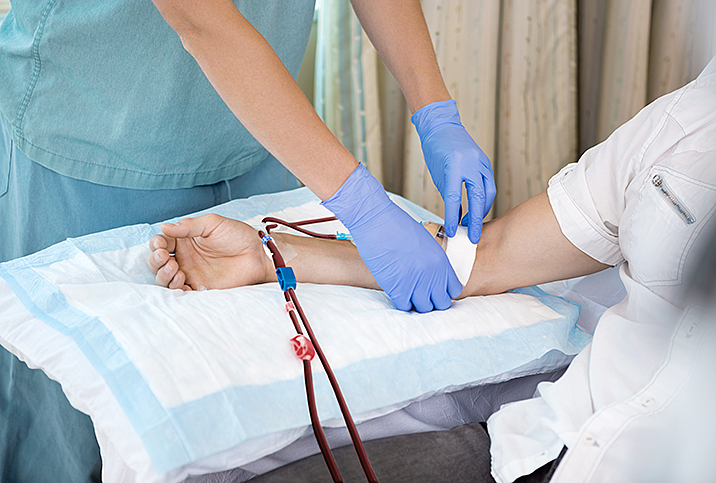Rapper David Rush's Patient Perspective on Kidney Disease

While kidney disease doesn't attract much attention, it affects an estimated 37 million people in the United States—and about 90 percent of people with kidney disease have no idea they have it, according to the National Kidney Foundation.
"Education and early detection are essential," said Susan Quaggin, M.D., president of the American Society of Nephrology in Washington, D.C. "However, patients need to ask questions and be in the driver's seat for their treatment plan to succeed."
David Rush, a successful recording artist and music producer from New Jersey, began his kidney disease journey in high school when a routine physical revealed he was spilling protein into his urine. A follow-up blood panel revealed Rush was in the early stages of kidney disease, which forced him to step away from his high school football team. This was a huge blow, shattering his dreams of playing for a college football team.
The early stages of kidney disease
Eventually, Rush returned to football, graduated from high school and attended college at a liberal arts college, where he focused on his music.
"Being sick wasn't for young people, and I felt fine," Rush said. "So like anyone else, I lived the college life, which included eating junk, staying up late and drinking too much."
By his junior year, Rush started to recognize signs that something was off with his body.
"I would take off my socks at the end of the day and I would see these deep rings from my socks," he said. "I thought they were just too tight but then I realized that I felt swollen."
After a physical and bloodwork, Rush discovered he was in acute renal failure. He was admitted to the hospital and diagnosed with focal segmental glomerulosclerosis (FSGS), one of the rarest kidney diseases.
"I felt like my life was over and I was only 24," Rush said. "I hit a really low point and I gave up."
Then one day, he woke up to find his music equipment on his bedside table with a note from his mother: "You can't stop now, you have so much more to say."
That message helped him to keep fighting, starting with daily outpatient dialysis treatment near his home in New Jersey.
"During this time, I spent more time with patients and my technicians than I did with my family," Rush explained. "The worst part is you would get to know other patients. You'd become friends, and then one day, you would show up for treatment and they'd be gone."
When this occurred, Rush wondered if he was next. This fear, as well as the support of his technicians, helped him focus on his treatment and health.
Juggling daily treatments and a career
"For a long time, I hid my condition," Rush explained. "I thought that if I told anyone, I would be seen as weak, so I would schedule my work around my dialysis and kept it a secret."
Eventually, when his career began to rise, he realized he had to come clean about his diagnosis.
"[American rapper] Pitbull wanted me to go on tour with him, and I thought there was no way I could do this, so I said no," Rush said.
To his surprise, Pitbull insisted he tour with him, and Rush was able to use a portable dialysis machine because his health was stable.
"We would wake up early to travel to our next city," Rush recalled. "I would set myself up in my hotel for a four-hour treatment before packing everything up. I would then do an hour set, opening for Pitbull. He would do his set, and we would be back on the road."
Rush didn't miss a treatment or a show.
His health was now under control, and by 2010, Rush was finally eligible for a kidney transplant. On July 9 of that year, a kidney became available, but as his wedding was the next day, Rush refused the surgery, citing poor timing.
In November 2010, Rush's brother Dwaine decided to get tested as a transplant donor and was a perfect match. Rush got his transplant and lived a relatively healthy life for the next seven years.
"The most important message that I want kidney patients to understand is that once you get a transplant, you can feel so good that you start to forget you're a patient for life," Rush said. "I felt so good that I would forget to take my medication, and over time, this led to the ultimate price."
In 2017, Rush's kidney failed. He later learned he had developed advanced kidney cancer, and the pressure from his swollen kidneys caused a hernia. He also lost his gallbladder. But he survived.
A message for all kidney patients
At age 40, Rush is still going strong. He's writing and producing music, and doing everything he can to maintain his health so he can be there for his wife, two children and siblings.
His patient advocacy work is a real passion.
"The message that I want to share with patients is to get involved in your treatment, because if you don't tell your doctors how you're feeling, how will they know if the treatment is working?" Rush said.
"Educating patients so they can be their own advocates is essential for a successful treatment plan and creating a strong support system," said Holly Kramer, M.D., M.P.H., professor of public health sciences at the Loyola University Chicago and immediate past president of the National Kidney Foundation.
"For everyone else, we need to focus on education and prevention, and this needs to start with our children," Rush explained. "We need to focus on our health just as much as we focus on math, because teaching kids what these organs do and how our dietary and lifestyle choices affect these functions can empower them to prevent chronic disease."
For more information about how to get involved in spreading the word about kidney disease, the American Association of Kidney Patients has educational materials and resources for patient support and treatment.


















